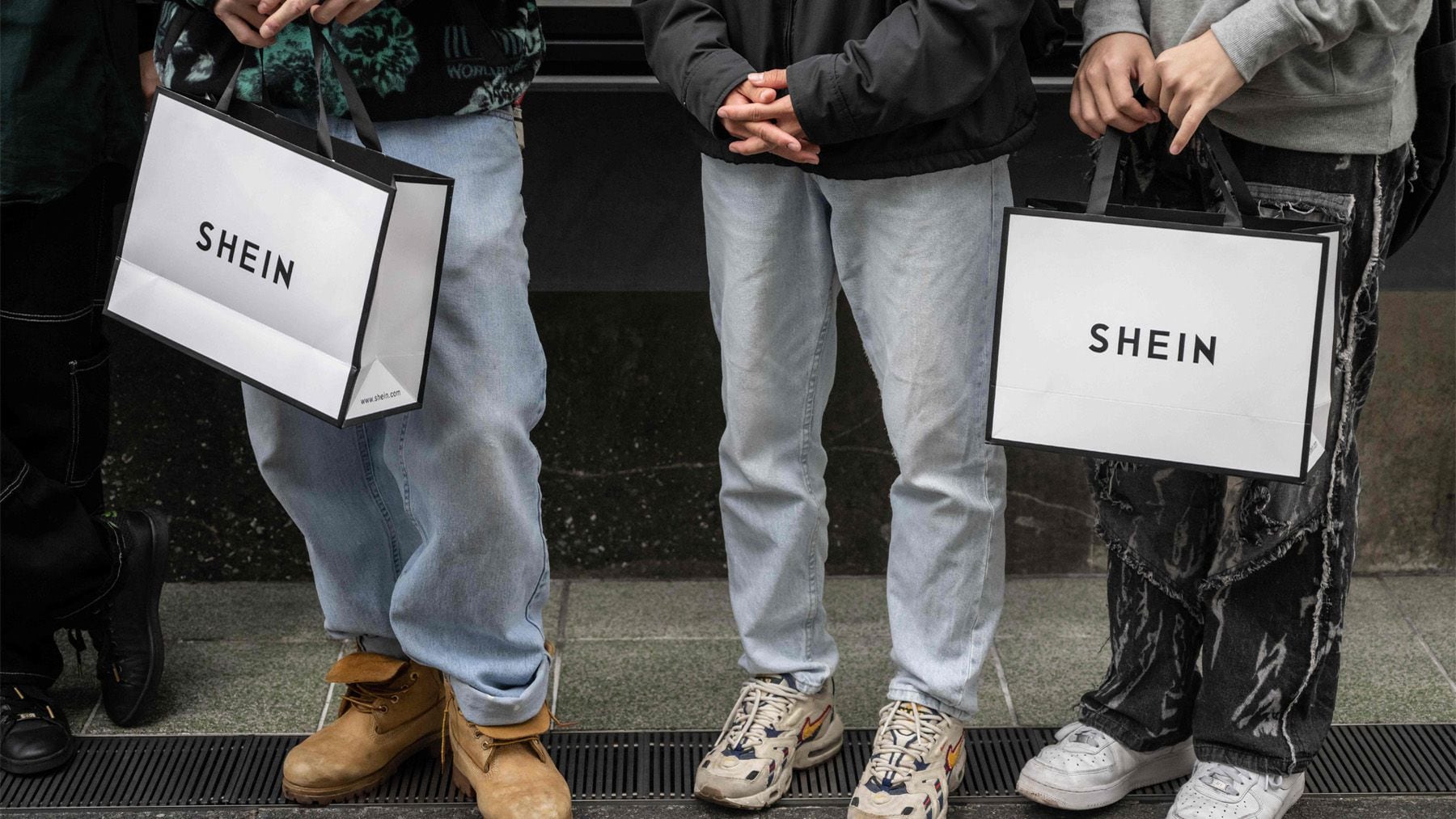
Fast-fashion retailer Shein has a lot of work to do to convince sceptics that the runway is clear for it to launch an initial public offering next year.
The Singapore-headquartered company filed confidentially for a listing in New York, a person familiar with the matter has said, weeks after Bloomberg News reported that it could seek a valuation of as much as $90 billion in a first-time share sale. If it sold a 10 percent stake, raising about $9 billion at that valuation, it would be the fifth largest consumer company IPO of all time, just behind Porsche AG’s $9.1 billion 2021 listing, Bloomberg calculations show.
To achieve that milestone, Shein will have to do a historic job of persuading sceptical investors, politicians and regulators that the controversies surrounding it aren’t an obstacle to its growth.
The company faces issues including allegations that its products contain cotton from a Chinese region accused of making the material with forced labour, regulatory concern about Chinese firms listing in the US and a bruising legal battle with rival PDD Holdings Inc.’s Temu. Investors will likely have questions about how much of management’s time will be taken up with challenges that aren’t directly related to maintaining the app’s dominance, built on selling clothes for as little as $2.
“One of the biggest disadvantages of an IPO is disclosure and publicity,” David J. Kaufman, co-chair of Thompson Coburn LLP’s corporate and securities practice group, told Bloomberg News. “There’s probably going be a big lobbying effort about why they’re not using forced labour and where they source their cotton, and how all that is changing, with codes of conduct and inspection programmes,” Kaufman said.
Representative Jennifer Wexton, a Democrat from Virginia and one of the most Shein’s most vocal critics, issued a statement Tuesday urging greater scrutiny of Shein’s supply chain ahead of a listing.
“If the fast-fashion giant Shein wants to go public in the US, they should have to prove to American consumers that their products are not sourced from forced labour,” Wexton said in the statement.
Wexton co-sponsored the Uyghur Forced Labor Prevention Act (UFLPA), a law banning products from China’s Xinjiang region, after a Bloomberg investigation last year found scientific evidence that cotton produced in the region, alleged to be made using forced labour, was present in clothing sold by Shein.
The Congresswoman also co-authored a letter to US Securities and Exchange Commission Chair Gary Gensler asking the agency to require Shein to prove its supply chain is free of forced labour before approving any Shein IPO applications.
Shein has a zero-tolerance policy for forced labor and requires its contract manufacturers to only source cotton from approved regions, according to a statement from a company spokesperson responding to Wexton. Only 2.1 percent of Shein’s cotton tested positive for unapproved cotton, the statement showed. The company declined to comment earlier on the confidential filing.
In addition to fighting in the halls of Congress, Shein is also locked in a battle with Temu, an app it competes with for fast-fashion buyers. The duo have sued each other, with Shein accusing Temu of trademark and copyright infringement, while Temu said Shein violated antitrust laws. Shein has said the suit is without merit and the firm will vigorously defend itself.
There have been few Chinese IPOs in the US since a sweeping crackdown on overseas listings that wiped out an estimated $1 trillion of market value. Part of Shein’s long-running campaign to prepare for a US first-time share sale is to position itself as a global company, even though it traces its roots to China.
In 2022, Shein relocated its headquarters to Singapore. Last year, the e-commerce giant also begun to expand its manufacturing facilities in an effort to diversify outside of its Chinese manufacturing base. It has opened distribution centers in the US, Canada and Europe in a bid to accelerate shipping times in those regions. The company bought British online brand Missguided in October, and took a stake in the owner of fashion retailer Forever 21 in August.
Chinese regulators may still decide to scrutinise Shein’s listing and require it to seek approval. The country’s securities watchdog requires Chinese companies to register to sell shares abroad, and screens them for state security and other concerns. That could delay the IPO process further.
Only a trickle of Chinese companies have been allowed to list in the US in recent years, and the offerings have been small. The biggest in the past two years, Hesai Group, raised $192 million on Nasdaq in February.
“Is this a opening of the log jam? Are the glory days back? No. This is a unicorn, it’s a unique example, giant and very valuable,” said Kaufman.
By Olivia Rockeman
Learn more:
Shein Files for US IPO in Major Test for Investor Appetite
Goldman Sachs, JPMorgan Chase and Morgan Stanley have been hired as lead underwriters on the initial public offering (IPO), and Singapore-based Shein could launch its new share sale some time in 2024, the sources said.



